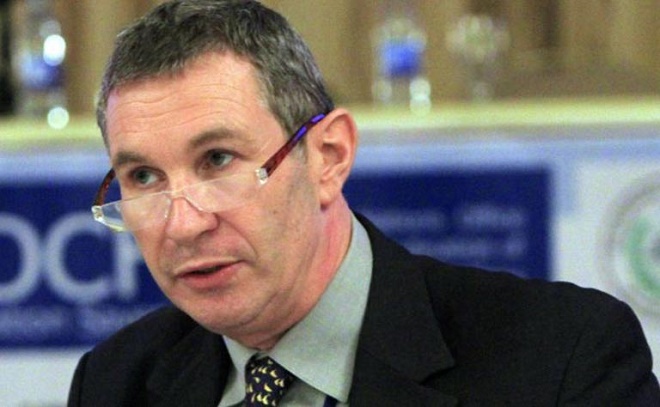More assistance needed in recently opened-up areas, says humanitarian coordinator

The Humanitarian Coordinator for Somalia, Peter de Clercq, has just returned from humanitarian assessment visits in the towns of Baardheere and Diinsoor, in the Gedo and Bay regions respectively.“I was pleased to meet with people on the ground and see how medical and other humanitarian supplies are now going to these areas, after years of isolation.
I was particularly encouraged by the resilience and determination of the people living in the towns we visited”, Mr. de Clercq said, “But a lot of work remains to be done, to help people rebuild their future”.Of particular concern are the displaced people returning to their homes, many of whom are in immediate need of support. Only limited humanitarian assistance has been provided in either location for many years, mainly due to insecurity. During recent military operations, hospitals were looted or burnt, leaving the civilian population in even more dire need of help.
On 5 August, humanitarian actors facilitated the transport of 1.2 metric tonnes of medical supplies into Diinsoor. This helped meet the town’s critical and urgent need for medication.
“As I visited hospitals and schools in the two towns, I spoke to people who had suffered enormously”, said Mr. de Clercq, “A woman told me she hasn’t been able to leave Diinsoor for the last eight years”. A mother of two, the woman feared for the lives of her children, as there were no health or educational services in the town.
Food, clean water and basic services remain scarce in both towns. Schools are due to re-open soon, but infrastructure is damaged and there are not enough teachers.
Livelihoods have mostly been destroyed over the past months, leading to serious food insecurity and high malnutrition. Farmers have had no access to quality seeds for almost a decade and there have been no livestock vaccinations. Irrigation systems are destroyed. Providing support to agricultural and livestock production is crucial, including urgent help for the local population to produce much more and much faster — so that they may gradually stand on their feet once again and look forward to a brighter future.
The Humanitarian Coordinator and the assessment teams discussed the response activities with authorities and humanitarian colleagues. During a meeting with community elders in Diinsoor, Mr. de Clercq praised their positive spirit of cooperation, courage and sacrifice to assist humanitarian actors in their efforts to deliver. “The expectations are very high, and we must work hard so that we do not let down the people of Diinsoor and other areas that recently opened up”, he said.
More than 14 humanitarian organizations currently work in the two towns, and more are expected to initiate activities as the situation improves.